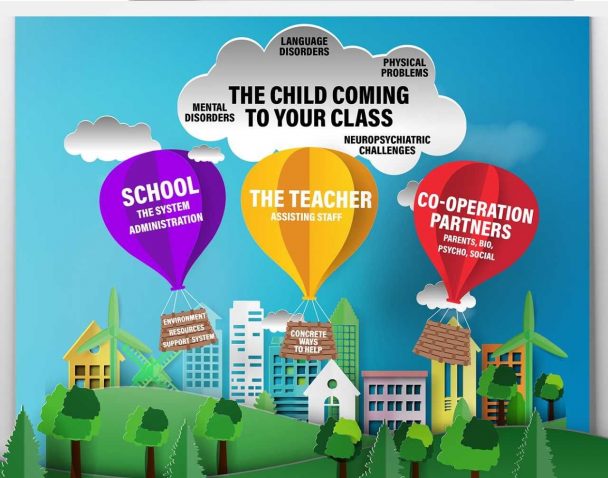Description
Children with learning difficulties and mental or neuropsychiatric disorders may pose particular challenges to teachers who are not familiar with their special needs.
This course will introduce you to the 3-staged model that the Finnish primary schools have specifically developed to promote the learning and personal growth of these children.
Designed and delivered by a Finnish teacher, the course clarifies how the best learning and growth in children with special needs is promoted by the close cooperation among the teacher, the school system and administration, and other partners outside the school (such as parents, and bio-, psycho-, and social institutions).
The course will provide you with a practical understanding of the difficulties and challenges that a child with special needs may have upon entering your classroom.
By the end of it, you will know concrete, hands-on methodologies for teaching to students with special needs and concentrate on their learning.
What is included
Learning outcomes
The course will help participants to:
- Identify the most common difficulties/challenges that a child with disabilities may have upon entering a classroom;
- Reflect on the role of the teacher a part of the system that helps every single children;
- Understand the function of social institutions, partners outside the school, and the teacher in working with children with special needs;
- Master concrete, hands-on methodologies to promote the learning and growth of children with special needs.
Tentative schedule
Day 1 – Course introduction & identifying disabilities
Course introduction
- Introduction to the course, the school, and the external week activities;
- Icebreaker activities using drama for trust and ensemble building;
- Identification of needs and goals for each participant and relevant populations.
Identifying disabilities
- Lessons about identifying neuropsychiatric challenges (ADD, ADHD, autism, Asperger, dysfasy, Tourette);
- Example cases and class discussion of participants personal cases;
- Presentations of the participants’ schools.
Day 2 – Identifying difficulties
- Lessons about identifying language difficulties, physical problems, and mental disorders (anxiety, depression, emotional and behavioral disorders);
- Example cases and class discussion of participants’ personal cases.
Day 3 – How to effectively support students
- Lessons about the factors that are essential in helping the child to cope with his/her challenges: school/institution/administration, partners outside the school, and the teacher;
- Understanding the role and the necessity of the factors mentioned in order to help the child in the best possible way;
- Self-reflection exercises oneself as a teacher and as an active member of the system helping the child;
- An example of a well-working support system from Finland.
Day 4 – Helping the child
- Helping the child in concrete ways;
- Lessons and hands-on examples concerning: learning environment, visuality, interaction, communication, structure, anticipation, motivation, and perceiving the time.
Day 5 – Emotional and behavioural support
- Helping the child in concrete ways. Lessons and hands-on examples concerning: controlling activity, managing behavior, managing emotions, supporting understanding, and social interaction;
- Round up of what the participants have learned;
- Brainstorming of possible changes that the participants will do when they return home.
Day 6 – Course closure & cultural activities
- Course evaluation: round-up of acquired competencies, feedback, and discussion;
- Awarding of the course Certificate of Attendance;
- Excursion and other external cultural activities.


